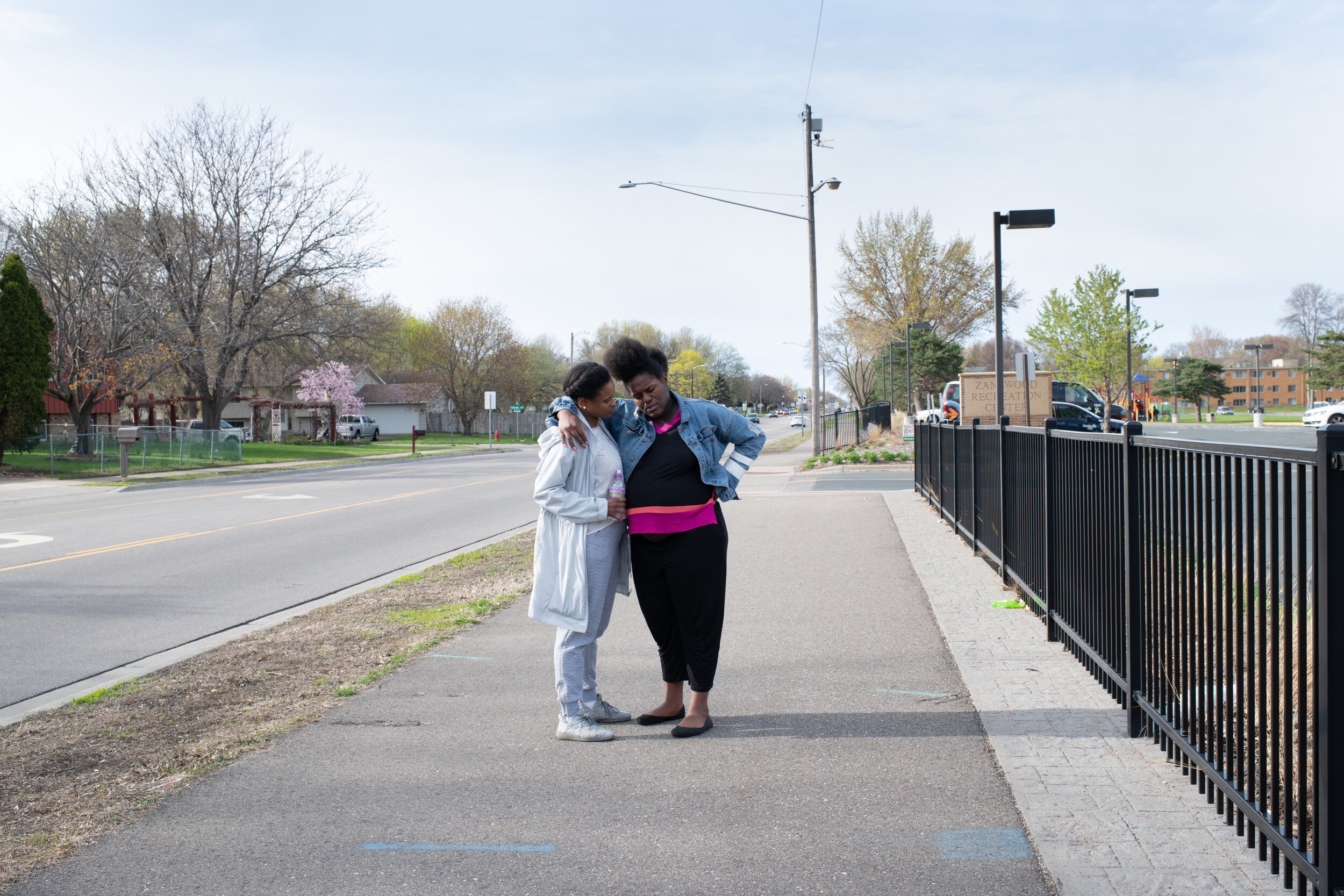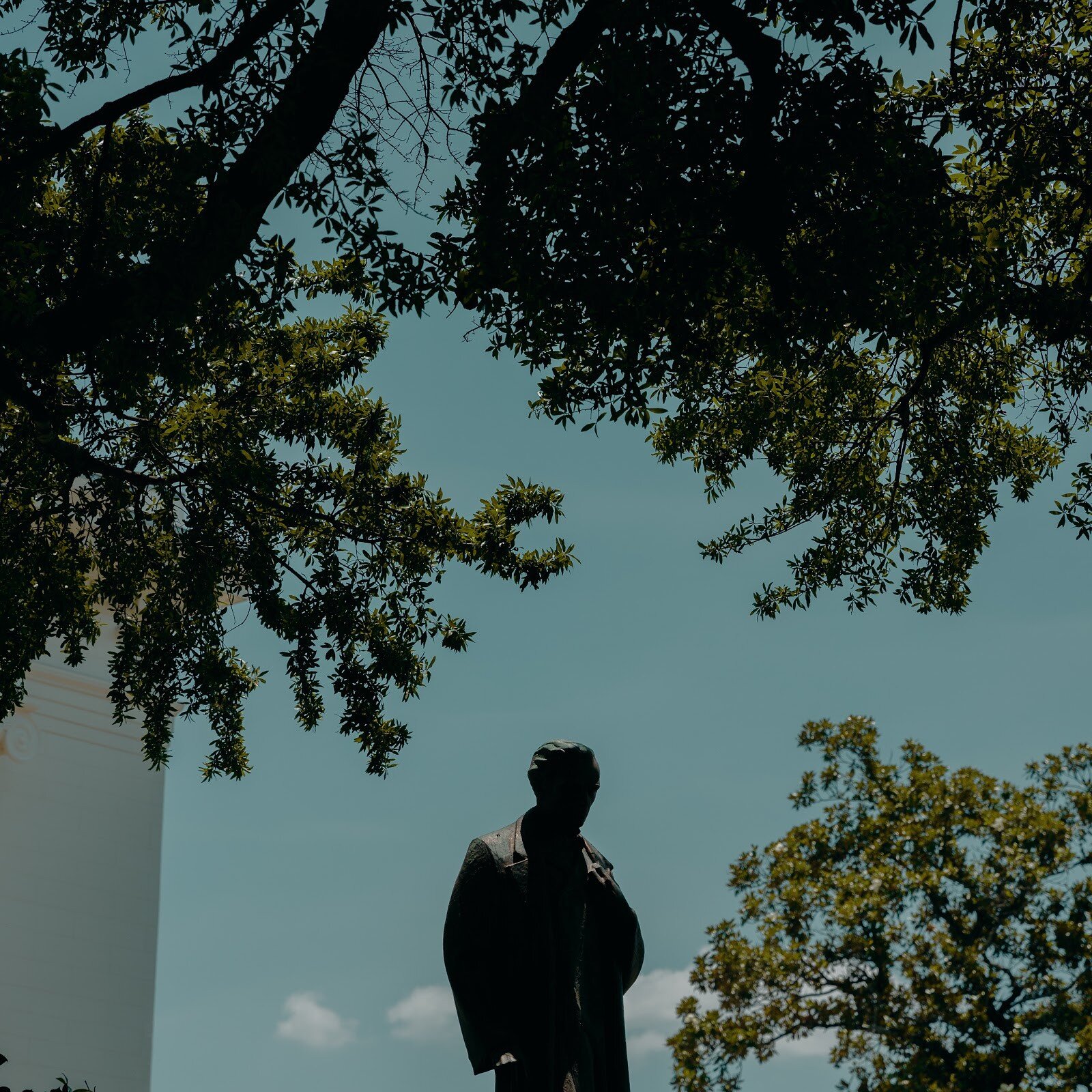Women Photograph awarded 11 photographers project grants totaling $60,000 in 2018, thanks to partnerships with Nikon, the Women’s Equality Center, and Getty Images. Take a look at some of what they've produced so far — and make sure to check out the 2019 Women Photograph grantees whose projects are now underway.
Jess T. Dugan
USA | www.jessdugan.com | @jesstdugan | Women Photograph + Nikon Grant
Davion, 2018
Zach and Oskar, 2019
Every Breath We Drew (2011-present) explores the power of identity, desire, and connection through portraits of the artist and others. Working within the framework of queer experience, these portraits examine the intersection between private, individual identity and the search for connection with others. Rather than attempting to describe a specific identity or group – the gender identity and sexual orientation of the individuals varies greatly – Every Breath We Drew asks larger questions about how identity is formed, desire is expressed, and intimate connection is sought.
Jess continues to work on Every Breath We Drew, and has been recognized in the past year with an ICP Infinity Award and as a finalist for the Arnold Newman Prize. You can catch some of Jess’ upcoming exhibitions, talks, and workshops here.
University of Tulsa, 2018
Ana Maria Arevalo Gosen
Venezuela | www.amagosphoto.com | @anitasinfiltro | Women Photograph + Nikon Grant
A woman inside a “closed” prison in Maracaibo - the border city between Venezuela and Colombia - helps arrange the net to play volleyball.
The current economic misery in Venezuela, mixed with violence and crime deeply rooted in society, is accentuated inside so-called preventive detention centers. Thousands of women waiting for trial are separated from their families and children for potentially many years. This work is about them and how the consequences of the malfunctioning justice system in Venezuela affects and traumatizes these women and their families even after their release.
Ana’s work was published in The New York Times — In Venezuela, Women in Prison Awaiting Trial Endure Crowded Conditions — and El Pais, and recognized with a POY LATAM award. You can read more about her and the project, Días Eternos, in this interview.
Two women hold hands in support of each other. Creating new friends and alliances is a common behavior inside these facilities.
The children of detained men and women wait to enter the center of detention during visitation hours.
Etinosa Yvonne Osayimwen
Nigeria | www.etinosayvonne.me | @etinosa.yvonne | Women Photograph + Nikon Grant
It’s All in My Head is an ongoing project that explores the coping mechanisms of survivors of terrorism and violent conflict by using layered portraits of the survivors and the things that they do to help them move forward. In the last two decades, Nigeria has witnessed an increase in terrorism and conflict. Survivors have witnessed violence enacted against themselves, their loved ones, and in some cases all that they own.
Etinosa has interviewed more than 50 people throughout Nigeria over the past year for It’s All In My Head, and the work has been published in The Guardian and It’s Nice That. She’s since been awarded additional grants by Lagos Photo Festival and ART X Lagos, and the work was exhibited this year at Photoville’s THE FENCE.
Deborah Danjuma, 40, Kaduna, Nigeria
Abdul-Razak Salisu, 27, Kaduna, Nigeria
Tasneem Alsultan
Saudi Arabia | www.tasneemalsultan.com | @tasneemalsultan | Women Photograph + Nikon Grant
Saudi Arabia has long been known as one of the world’s most conservative countries, a place where religious police have been known to routinely enforce strict social codes and public political debate forums are censored. This project aims explores the underlying social and economic complexities of Saudi Arabia's Shiaa minority, a group that remains largely invisible to the world.
Anna Boyiazis
USA | www.annaboyiazis.com | @annaboyiazis | Women Photograph + Nikon Grant
Swim instructor, octopus hunter, elder Bisichana (far right) walks on shore with her octopus hunter swim students after their lesson. Second from left is the wife of the village elder.
Finding Freedom in the Water documents women and girls learning to swim for the first time in Zanzibar. Daily life in the archipelago centers around the sea, yet the majority of girls who inhabit the islands never acquire even the most fundamental swimming skills. Conservative Islamic culture and absence of modest swimwear have compelled community leaders to discourage girls from swimming — until now. Full-length swimsuits and lessons are providing women and girls the opportunity to finally learn aquatic safety and experience being in the ocean without compromising their cultural and religious beliefs.
Finding Freedom in the Water was also awarded a 2019 Getty Images Reportage Grant this year.
Single mother sponge farmers practice breathing wearing mask and snorkels during their swim lesson.
A student rests in shallow water after her swim lesson.
Nadia Shira Cohen
Italy | www.nadiashiracohen.com | @nadiashiracohen | Women Photograph + Getty Grant
Nolvia Nohemy, 27, tried to kill herself when she was 22, after having miscarried at 5 months. Nolvia had lived in Belize with her ex-boyfriend, also from El Salvador and endured 2 years of extreme abuse. Doctors told her that the child she was carrying had a deformed head and would not live. Nolvia believes this was due to the abuse she suffered at the hands of her ex-boyfriend and, feeling guilty for having let that happen, she decided to take her own life. She first thought about swallowing all the pills in the house and then settled on slitting her wrists. She was brought to the hospital by her family in time. After having suffered another miscarriage, Nolvia is now 32 weeks pregnant with her current partner who she says supports her.
Yo No Di a Luz looks at the complete prohibition on abortion in El Salvador, and the many ways in which the criminal abortion ban affects the country's women. The project specifically focuses on the consequences of enforcing such restrictive laws, in particular the suicides in pregnant teens, women, and girls forced to birth children of rape.
Yo No Di a Luz was exhibited at La Casa de las Mujeres in Suchitoto, and one of the women Nadia concentrated on who had been imprisoned for 11 years and was just freed in June came to speak. Nadia is now working on a book, and plans to use the proceeds to support the wrongly imprisoned women.
La Casa de las Mujeres
La Casa de las Mujeres
Angela Ponce
Peru | www.angela-ponce.com | @barrios.altos | Women Photograph + Women’s Equality Center Grant
Latin America and the Caribbean has the second highest rate of teenage pregnancy in the world. An average of 38% of women in the region become pregnant before reaching the age of 20 and almost 20% of births are from teenage mothers. This project aims to call for reflection on adolescent pregnancy in Argentina and show how gendered inequality and the lack of opportunity impacts Argentine women.
Historias de Embarazos Adolescentes en América Latina, Correo
Alice Proujansky
USA | www.aliceproujansky.com | @aliceproujansky | Women Photograph + Women’s Equality Center Grant
Em'Mae Alexander's labors as her midwife, friend and partner look on. Midwife Rebecca Polston recommended the hospital transfer because she wanted to be able to monitor the fetal heart rate decelerations more closely.
Em'Mae Alexander labors in a restaurant with the support of her mother, Tulani Alexander. Midwife Rebecca Polston suggested she go for a walk so her labor could progress more before admission to the birth center.
The U.S. is the only industrialized nation with a rising rate of maternal mortality, and that rate is two to four times worse for women of color than their white counterparts. But there is a movement from within to provide evidence-based, respectful, culturally-focused midwifery care. And the evidence shows that it’s working. This work examines the ways that reproductive healthcare embodies access, choice, history, misogyny and structural racism, revealing that negative birth outcomes are not just difficult personal experiences, but expressions of a complex interplay of medicine and culture manifested in women’s bodies.
The Black Midwives Changing Care for Women of Color, The Guardian
Analia Cid
Argentina | www.analiacid.com | @analia.cid | Women Photograph + Women’s Equality Center Grant
A group of young women hold hands during a demonstration to raise consciousness about the number of femicides that happened in Argentina in only one month.
View of the Las Flores slum from Mariana's rooftop in Florida Oeste, Buenos Aires.
Nahir, one of Mariana's daughters, in the rooftop of her house inside Las Flores slum, Florida Oeste,
This project follows the lives of a family of women from Buenos Aires who have each experienced a different kind of obstetric violence across three generations. Their story is a way to understand how reproductive rights are being violated every day in Argentina, which rejected legalizing abortion in 2018 and routinely neglects the country’s existing progressive legislation.
Sin Aborto Legal No Hay Parto Respetado, Revista Anfibia
Bethany Mollenkof
USA | www.bethanymollenkof.com | @fancybethany | Women Photograph + Women’s Equality Center Grant
Brianna Moore and her kids at home in Mobile, Alabama.
This project documents the rebirth of Alabama's midwifery movement through black home-birth advocates, and reflects on the history of black “granny midwives.” The work aims to refocus the narrative of maternal health care in rural communities by exploring the experiences and histories of black women and the disparities in treatment by race and class.
What It’s Like to Be Black and Pregnant in Alabama, Zora
Francesca Volpi
Italy | www.francescavolpi.com | @francesca_volpi_photo | Women Photograph + Women’s Equality Center Grant
Yanet (invented name to protect her identity) is 25, and had an abortion one month ago at the 3rd month of pregnancy. She says “I felt mistreated by my boyfriend, he beats me sometimes and I decided it wasn’t the best environment for a child to grow up, plus I don’t work and he sells drugs and we don’t make enough money to provide for ourselves, let alone a child. My family doesn’t support me because I live with him and they don’t accept him and what he does for living. I asked to a relative about the CITOTEC pill, I swallowed two pills and I inserted other two in my lowest parts. It was painful but it worked, I had a lot of bleeding but I didn’t go to the hospital. I buried the fetus in my backyard”.
Honduran abortion restrictions mean that women constantly use homemade and unsafe methods to abort: from pills bought on the internet to herbal infusions and the use of blunt objects. Often, abandoned fetuses or new born babies are found in city-dumps or on the floor on the main square in Tegucigalpa. The unjust criminalization of Honduran women’s reproductive decisions limits their civil rights and undermines Honduran democracy itself.



































